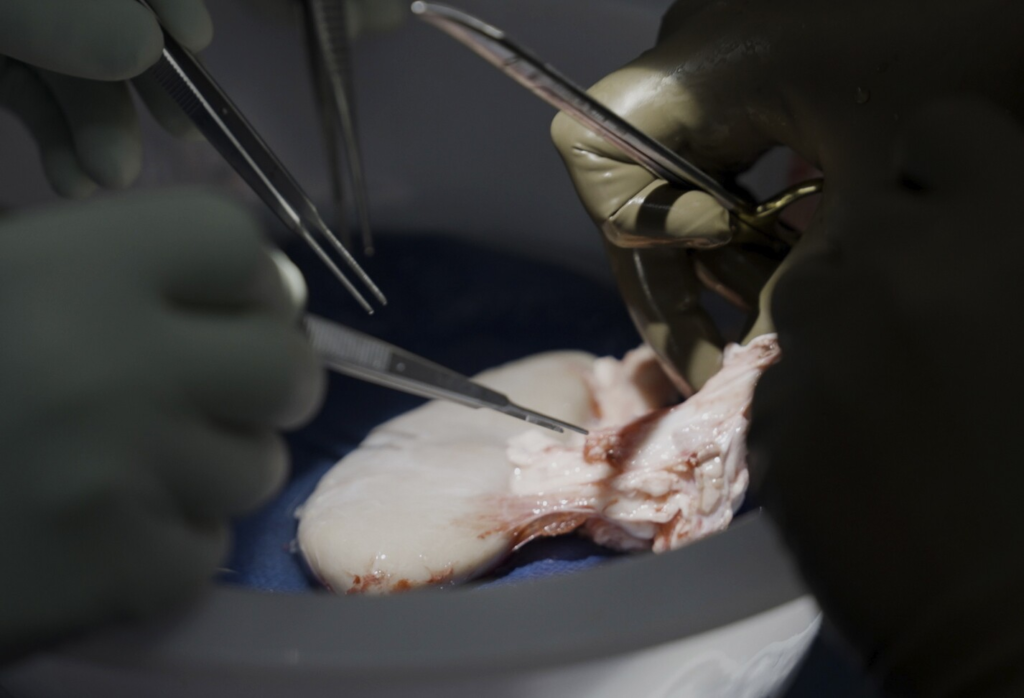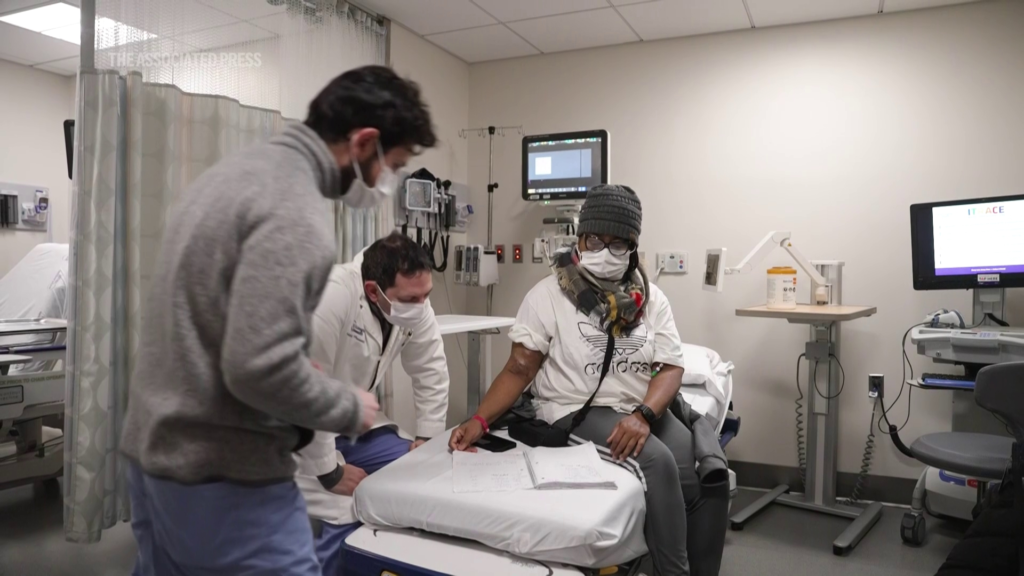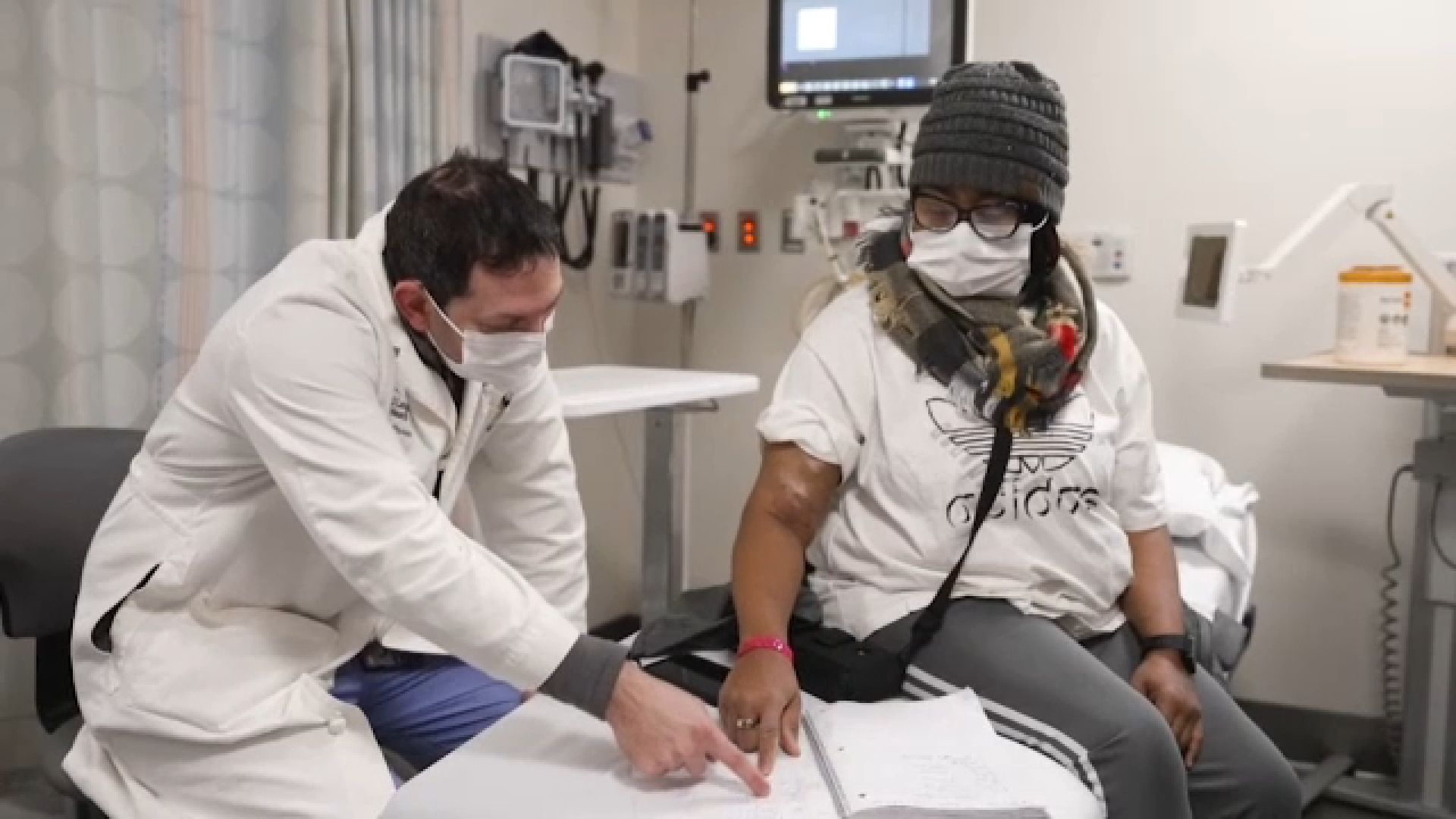The field of medicine is filled with groundbreaking innovations, but few compare to the incredible story of Towana Looney, the first person in history Living with Pig kidney.
Her journey has not only set a new record but also reignited hope for solving one of the greatest challenges in healthcare — the shortage of donor organs. With her remarkable recovery, Looney has become a symbol of resilience and scientific achievement, demonstrating the transformative potential of xenotransplantation.
The Journey of a Medical Pioneer
Towana Looney’s journey to becoming a medical pioneer is both inspiring and unique. A 53-year-old woman from Alabama, Looney faced an uphill battle when her single kidney failed, an exceedingly rare condition for a living donor.
Years earlier, she had selflessly donated one of her kidneys to her mother. However, subsequent complications during pregnancy led to high blood pressure that irreparably damaged her remaining kidney.
After spending eight arduous years on dialysis, Looney’s prospects of receiving a human kidney transplant were slim. Her body had developed exceptionally high levels of antibodies, making it almost impossible to find a suitable human donor. The desperate situation led her to explore experimental options, including a pig kidney transplant.
Read : Parents Kill Son for Spreading Rumors About an Extramarital Affair In Kadapa
On November 25, 2024, at NYU Langone Health, Looney became the recipient of a gene-edited pig kidney in a groundbreaking surgical procedure led by Dr. Robert Montgomery.
Read : Woman Who Received Pig Kidney Along with Implanted Heart Device Dies After 47 Days
Her recovery, marked by vibrant health and renewed energy, has been nothing short of extraordinary. Today, over two months post-transplant, Looney continues to thrive, marking a significant milestone in the realm of xenotransplantation.
A Step Forward for Xenotransplantation
Xenotransplantation, the process of transplanting animal organs into humans, has long been viewed as a potential solution to the severe shortage of human donor organs. More than 100,000 people in the United States alone are on the transplant waiting list, with the majority needing kidneys. Tragically, thousands die each year while waiting for a life-saving organ.
Pig organs, due to their size and physiological similarities to human organs, have been a focus of xenotransplantation research. However, the success of such procedures has been hindered by the human immune system’s tendency to reject foreign organs. Scientists have attempted to address this challenge by genetically altering pigs to make their organs more compatible with human biology.

Looney’s case stands out not only for its success but also for the knowledge it has provided to researchers. Unlike previous recipients of pig organ transplants, Looney was considered a “highly sensitized” patient with overactive antibodies that were likely to attack a foreign organ. This made her case uniquely complex and invaluable for understanding the nuances of xenotransplantation.
Shortly after her surgery, Looney’s medical team detected early signs of organ rejection. Drawing on insights from a previous experiment involving a deceased donor, the team successfully intervened, halting the rejection process.
Since then, her kidney function has been described as “absolutely normal” by Dr. Montgomery, offering hope that such transplants could one day become a viable option for other patients.
A New Era of Possibilities
Looney’s recovery has sparked renewed enthusiasm in the medical community and beyond. Her case has demonstrated that animal-to-human transplants can work, even in patients with complex medical histories.
As hospitals and researchers share data from these experimental procedures, the stage is being set for the world’s first formal clinical trials of xenotransplantation.
One of the key players in this emerging field is United Therapeutics, the company that supplied Looney’s kidney. The organization has recently requested FDA approval to begin trials, signaling a major step forward in the pursuit of making xenotransplantation widely available.
Looney’s success story also underscores the importance of collaboration in scientific research. Dr. Tatsuo Kawai, a leading xenotransplantation expert from Massachusetts General Hospital, highlighted the need for researchers to learn from each other’s experiences. The lessons gained from Looney’s progress will undoubtedly inform future attempts and refine the process for greater success rates.
Beyond the scientific implications, Looney’s case has captured public imagination and inspired hope among patients awaiting transplants. Her vibrant health and positive outlook serve as a beacon for others who may one day consider similar experimental procedures.
Through social media and personal interactions, she has become an ambassador for the potential of xenotransplantation, offering encouragement and guidance to those facing similar struggles.

While Looney’s recovery marks a significant milestone, it also raises important questions about the future of xenotransplantation. How long will her new kidney function? What are the potential long-term complications? These uncertainties highlight the need for continued research and careful monitoring.
Dr. Montgomery has emphasized the importance of staying vigilant and learning from each step of Looney’s journey. As the first person to live with a functioning pig kidney, her experience is uncharted territory. The knowledge gained from her case will be instrumental in identifying and addressing future challenges, paving the way for more successful transplants.
For Looney, life with her new kidney is a “new take on life.” She has embraced her role as a medical pioneer, using her story to inspire and educate others. Her willingness to participate in this groundbreaking experiment has not only given her a second chance at life but also brought the world closer to solving the organ donor crisis.
In a field where progress is measured in small, incremental steps, Looney’s story stands out as a giant leap forward. Her thriving recovery is a testament to the potential of science and the human spirit to overcome seemingly insurmountable challenges.
As researchers continue to build on this success, the dream of making xenotransplantation a routine medical procedure may no longer be a distant possibility but an imminent reality.

